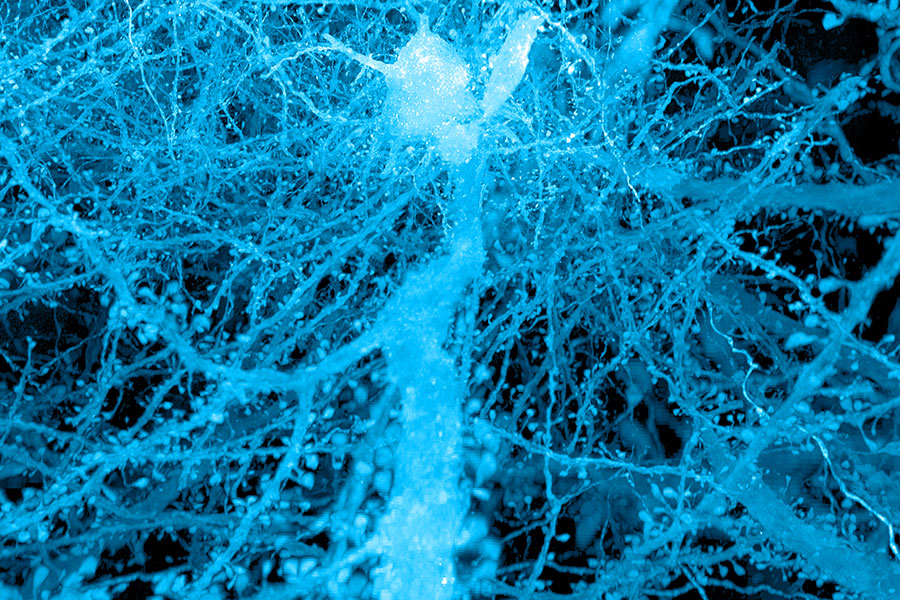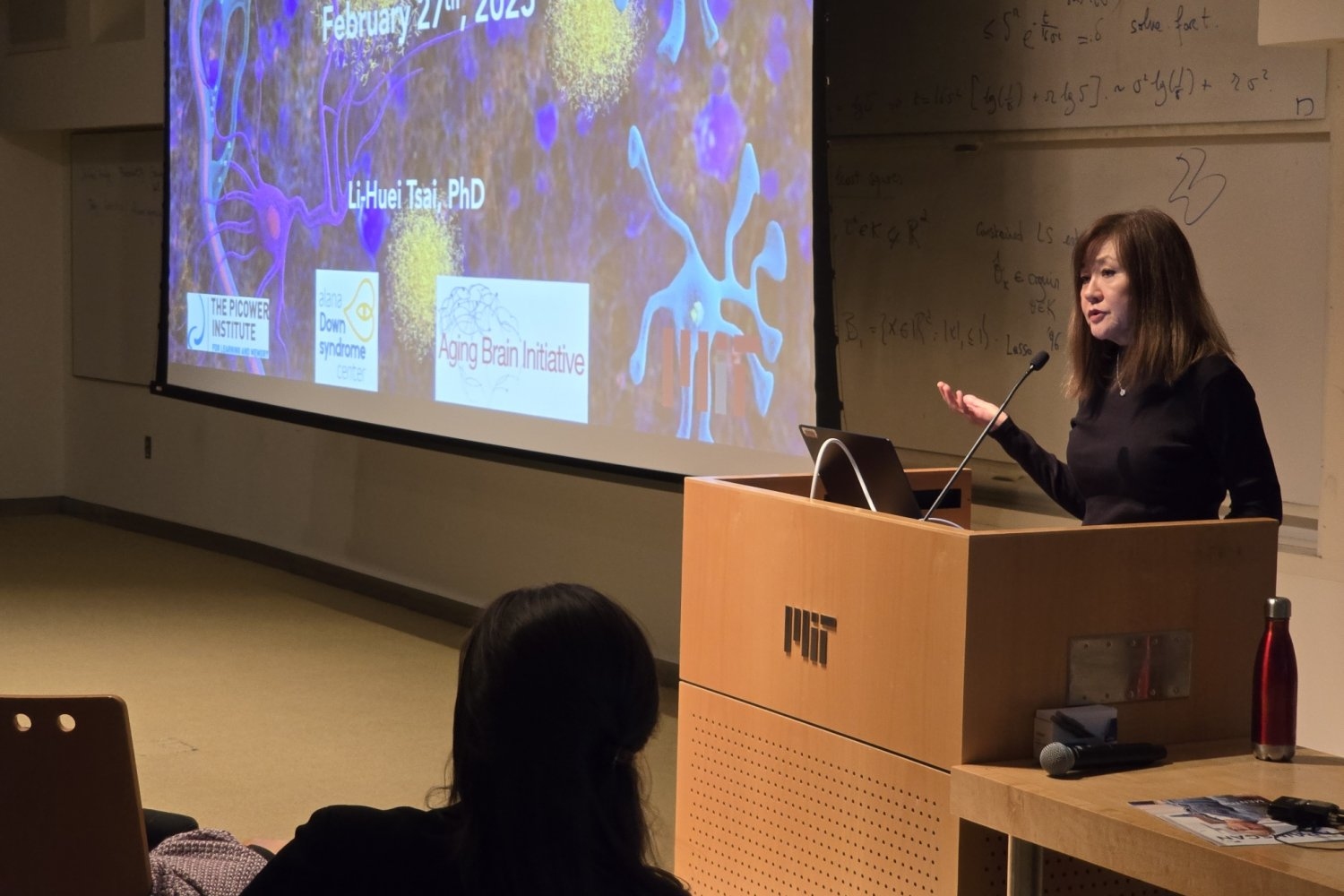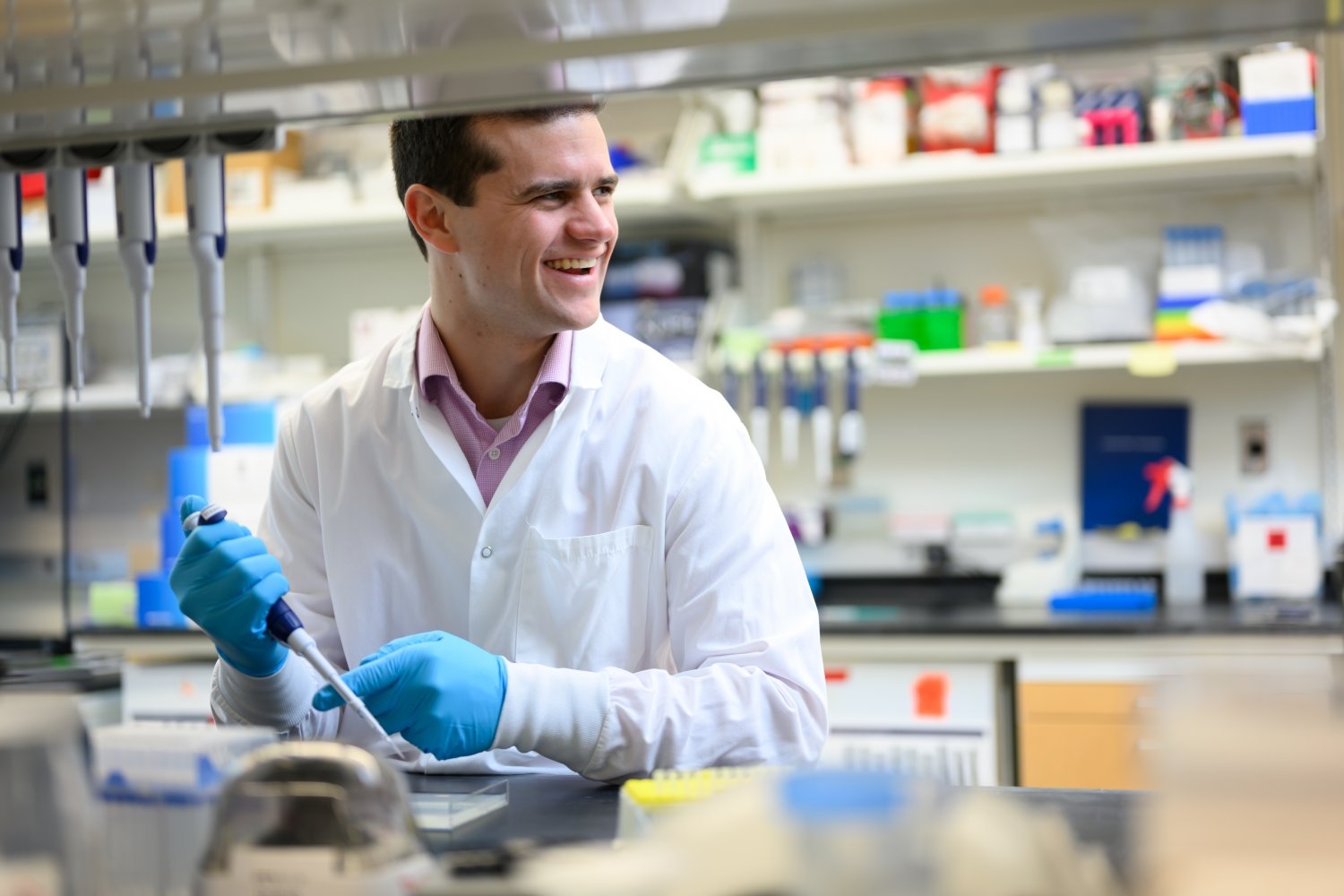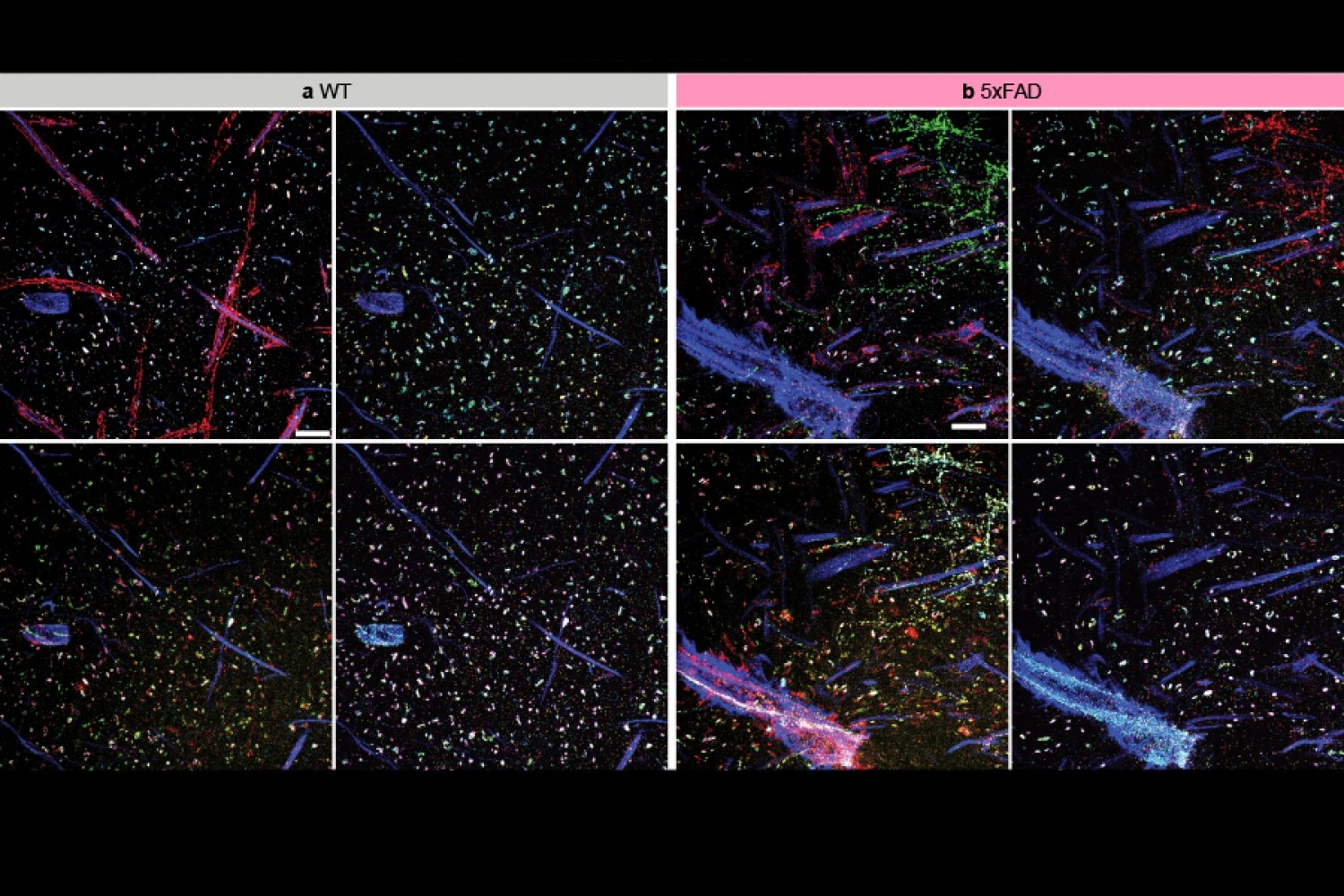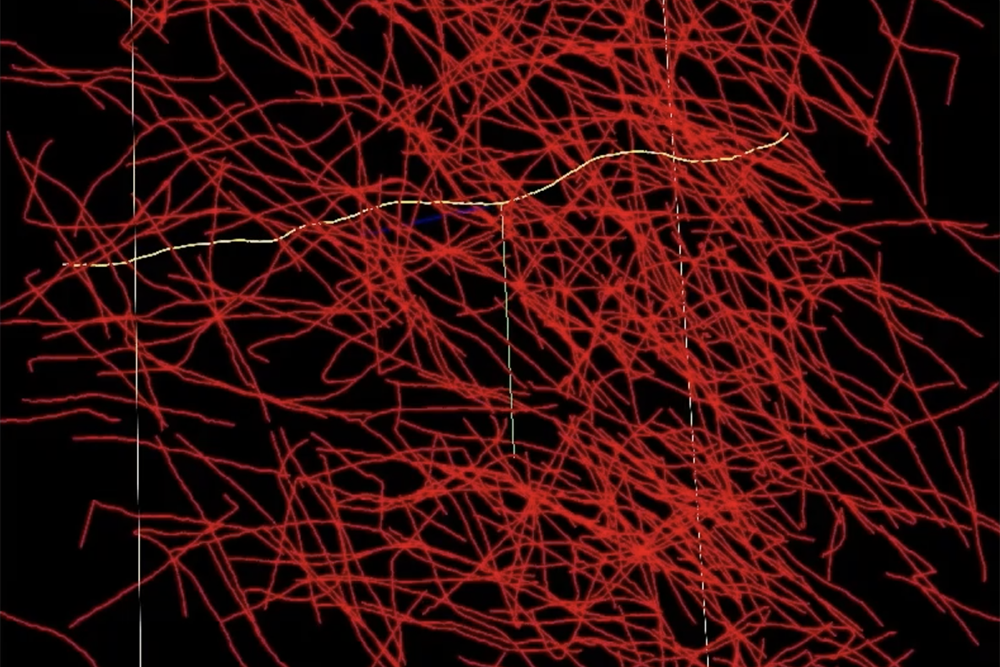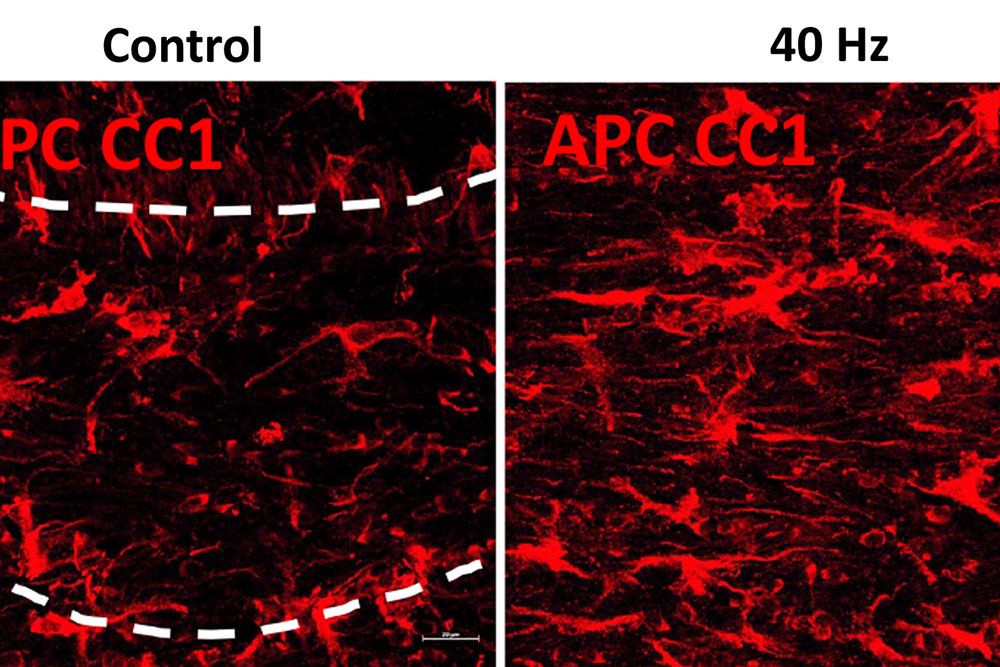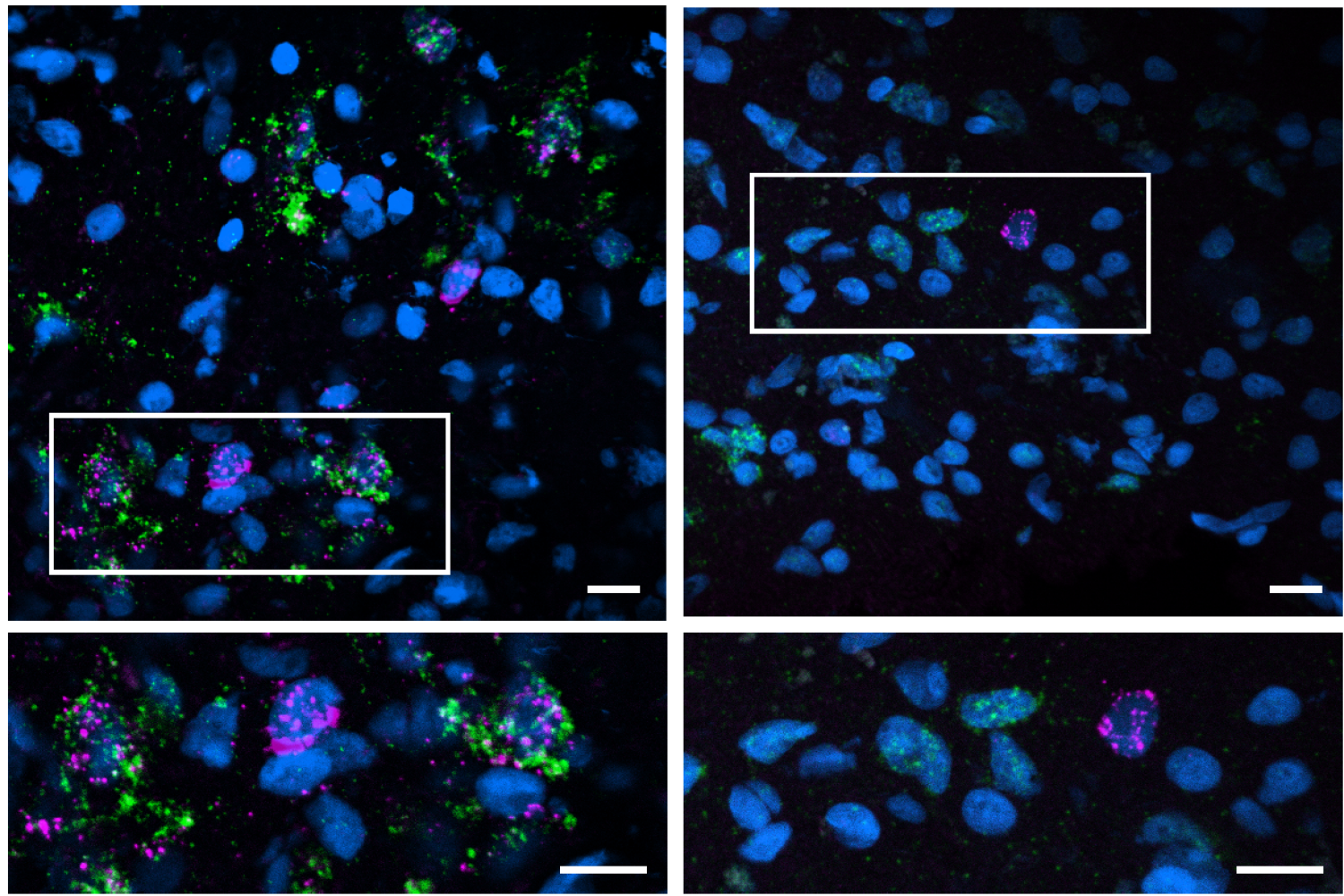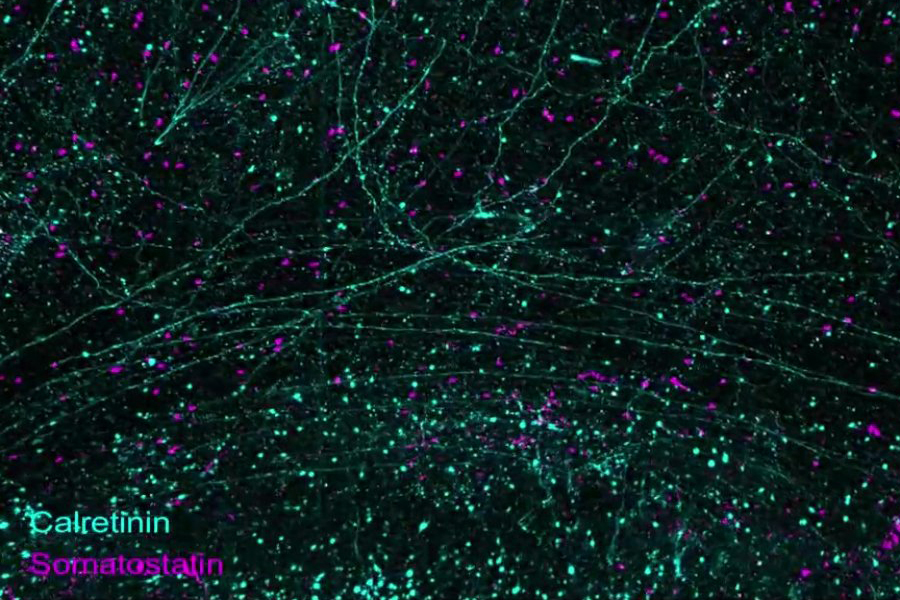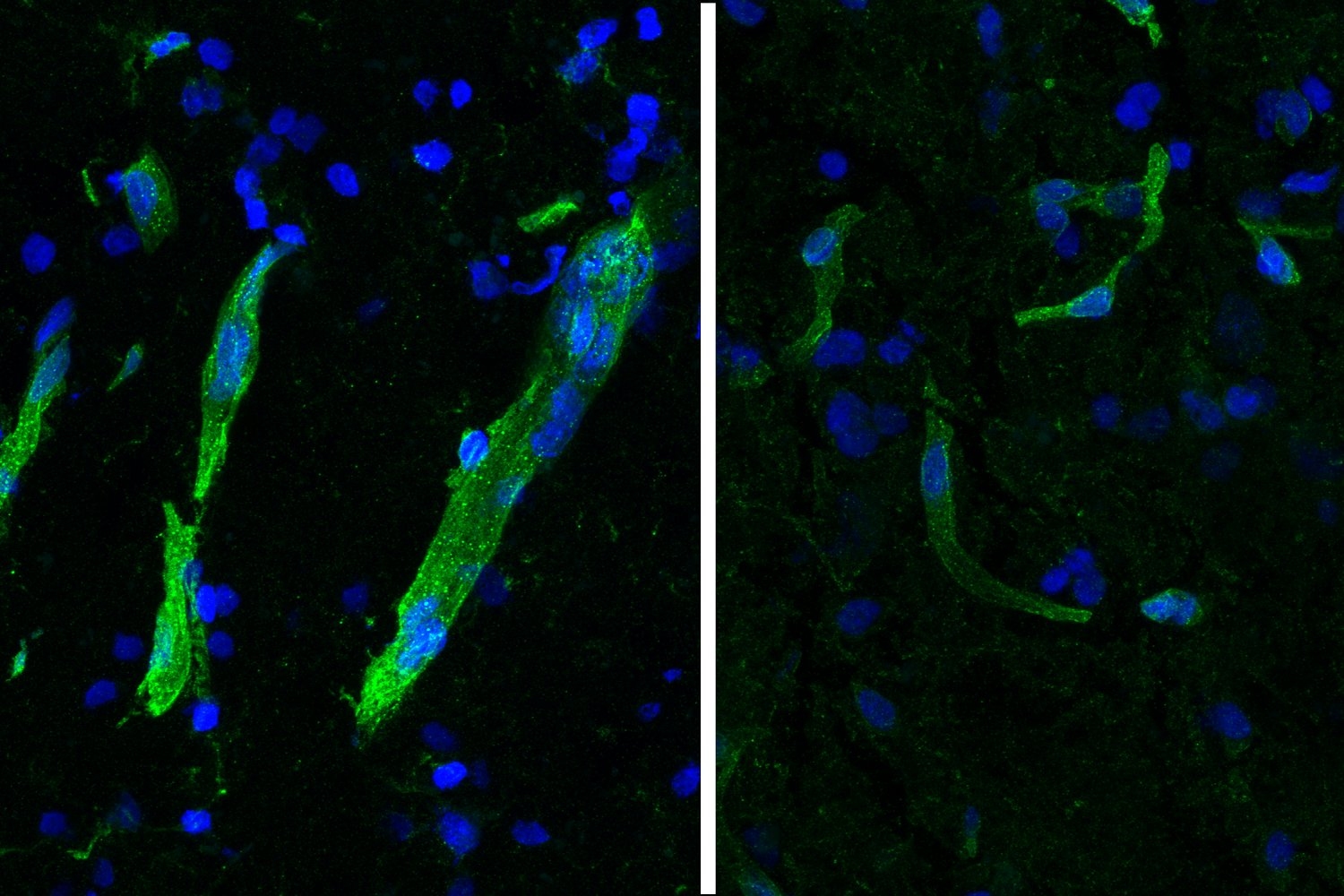A brief history of expansion microscopy
Since an MIT team introduced expansion microscopy in 2015, the technique has powered the science behind kidney disease, plant seeds, the microbiome, Alzheimer’s, viruses, and more.
April 23, 2025 • ~13 min
Evidence that 40Hz gamma stimulation promotes brain health is expanding
A decade of studies provide a growing evidence base that increasing the power of the brain’s gamma rhythms could help fight Alzheimer’s, and perhaps other neurological diseases.
March 14, 2025 • ~6 min
Study reveals ways in which 40Hz sensory stimulation may preserve brain’s “white matter”
Gamma frequency light and sound stimulation preserves myelination in mouse models and reveals molecular mechanisms that may underlie the benefit.
Aug. 13, 2024 • ~9 min
Study across multiple brain regions discerns Alzheimer’s vulnerability and resilience factors
Genomics and lab studies reveal numerous findings, including a key role for Reelin amid neuronal vulnerability, and for choline and antioxidants in sustaining cognition.
July 24, 2024 • ~11 min
Technologies enable 3D imaging of whole human brain hemispheres at subcellular resolution
Three innovations by an MIT-based team enable high-resolution, high-throughput imaging of human brain tissue at a full range of scales, and mapping connectivity of neurons at single-cell resolution.
June 17, 2024 • ~12 min
Study: Movement disorder ALS and cognitive disorder FTLD show strong molecular overlaps
Single-cell gene expression patterns in the brain, and evidence from follow-up experiments, reveal many shared cellular and molecular similarities that could be targeted for potential treatment.
March 22, 2024 • ~9 min
/
7


